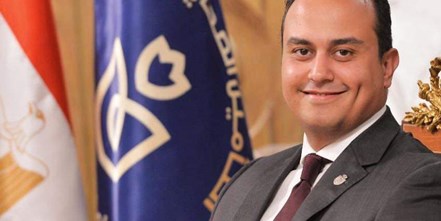



During a Cabinet meeting chaired by Dr. Mostafa Madbouly, Prime Minister of Egypt, Dr. Ahmed El-Sobky, Chairman of the Egypt Health Care Authority and Supervisor of the Universal Health Insurance and Hayat Karema projects at the Ministry of Health and Population, appreciated the diligent and continuous oversight by the Prime Minister's Office over the activities and achievements of the Egypt Health Care Authority, one of the entities of the Universal Health Insurance project. This oversight, directed by the political leadership, aims to achieve the project at the highest level.
Dr. El-Sobky confirmed that this wise monitoring has significantly enhanced the capacity to provide outstanding health services to citizens in the governorates implementing the system. Through the development of health infrastructure and the digitization and digital transformation of services, the scope of coverage has been expanded, and the quality of health care provided has been improved. He added that there is a forward-looking plan to successfully implement the strategies and achieve future goals.
This discussion occurred during the presentation of the semi-annual performance report of the Egypt Health Care Authority for the first half of the fiscal year 2024/2023, covering the period from July to December 2023. The report detailed the health and therapeutic services provided in the governorates implementing the Universal Health Insurance system and the financial standing during that period.
Dr. El-Sobky highlighted that the total number of registered individuals in the Universal Health Insurance system reached over 4.9 million beneficiaries by December 31, 2023, in the six phase one governorates (Port Said, Luxor, Ismailia, South Sinai, Suez, Aswan). This figure represents more than 80% of the total population in these governorates.
The total number of health services provided to beneficiaries of the Universal Health Insurance system during the mentioned period reached 34.4 million, including 14.7 million primary care services and 14.2 million medical examination services.
Dr. El-Sobky also mentioned the initiation of the second phase of clinical governance implementation in collaboration with the World Health Organization. This phase included a plan to train all health service providers on proper medical record-keeping standards and the international coding of diagnoses and surgical interventions.
He further noted that 107 new health facilities were operational from July to December 2023 in four governorates (Ismailia, Suez, South Sinai, Aswan), bringing the total number of primary care facilities in the phase one governorates to 280. The comprehensive examination file was developed, facilitating access to all registered beneficiaries of the Universal Health Insurance system, including those not regularly visiting the facilities.
Moreover, psychological counseling rooms were introduced in 204 health facilities and 102 new specialty clinics in several family medicine centers. The service package in emergency rooms was expanded to include surgical stitching, wound dressing, handling emergency internal medicine and surgery cases, and providing first aid for accidents and cardiac and cerebral strokes.
In terms of referrals, policies were updated and service linkage maps activated based on geographic proximity and the types of available specialty clinics. Family planning services and methods were activated across the facilities, with 518 doctors and 232 nurses trained on family planning and counseling in coordination with the Ministry of Health's Family Planning Sector. Training on the Integrated Management of Childhood Illnesses (IMCI) program for children up to the age of five years was also initiated.
Dr. El-Sobky highlighted health services related to school examinations, continuous development of home visit services, activation of offices for the elderly, and rooms for presidential initiatives in all primary care facilities.
He pointed out the health services provided under secondary and tertiary care management across the phase one governorates, as well as achievements of medical and therapeutic committees. Regarding the Engineering Administration's achievements in the second half of 2023, 569 medical devices were supplied, including 12 strategic devices, and routine maintenance was performed on approximately 23,000 devices, alongside the activation of newly joined facilities in Aswan and Suez.
Dr. El-Sobky concluded by noting the Supply Management's ongoing and precise monitoring of various procurement processes for supplies, contributing to the provision of the best available medical service to meet patients' needs and ensure the availability of various required drugs, supplies, equipment, and fittings.